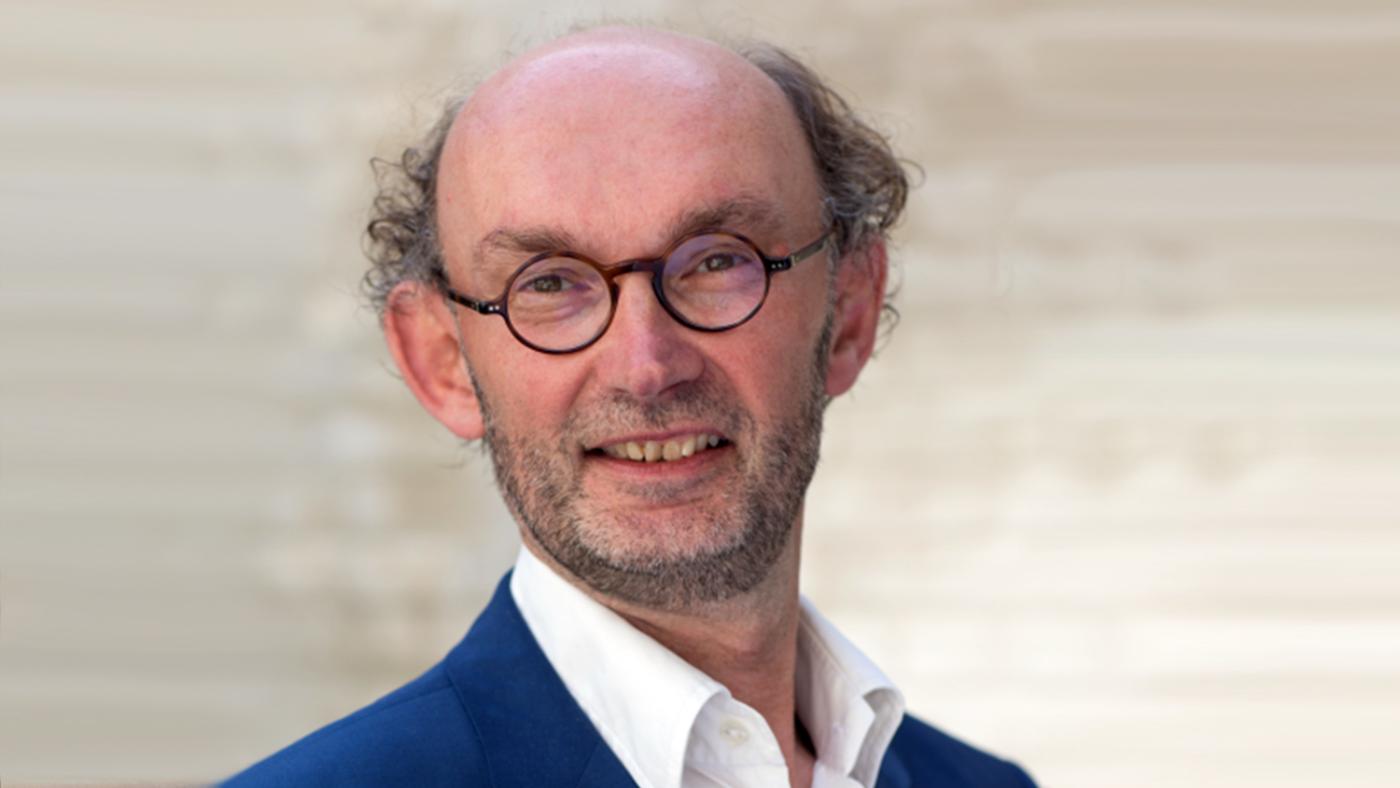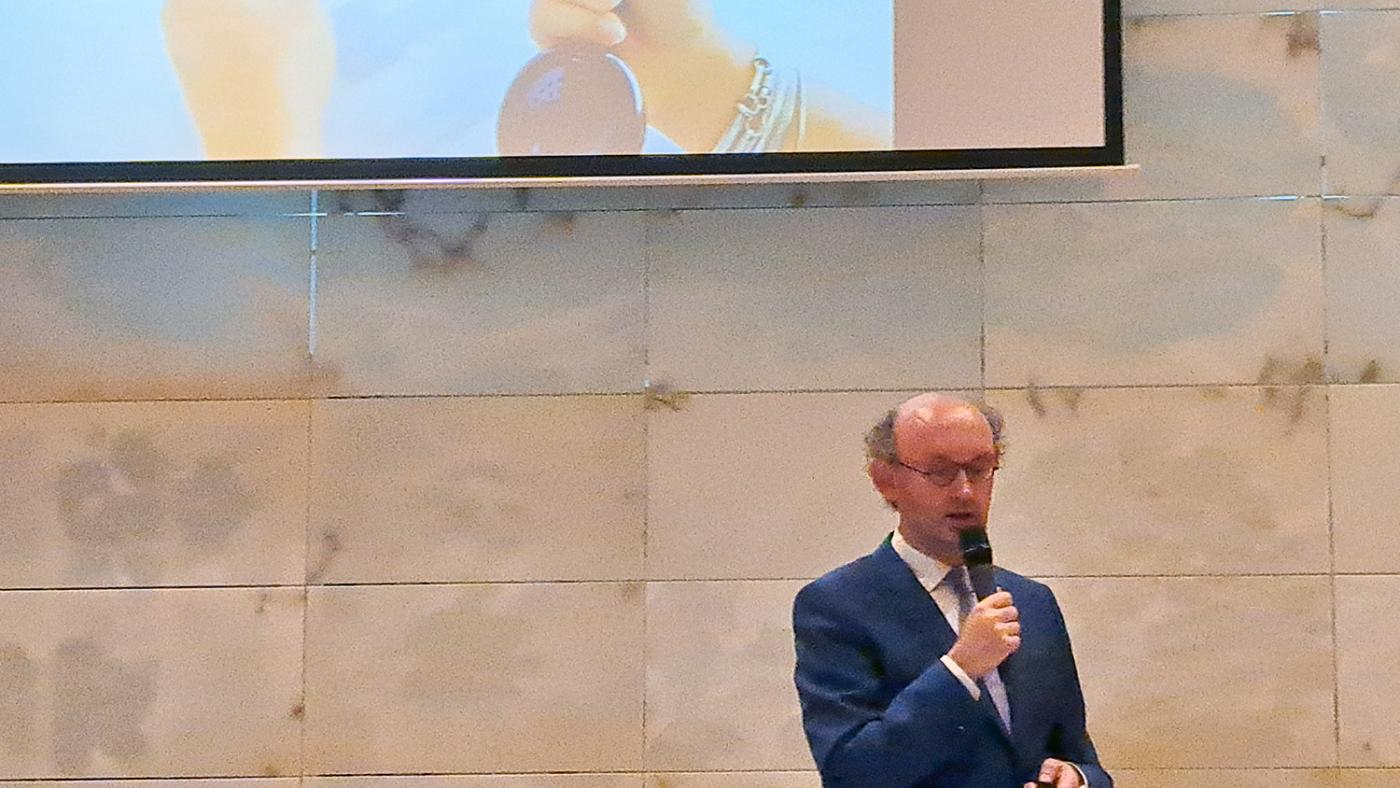Professor Kees van den Bos is optimistic
‘Politics can regain people's trust’

The way the Dutch government handled issues like the Covid-19 pandemic, the childcare benefits scandal, and the compensation for damages in Groningen and Limburg prove that treating people fairly is not a given. Even Kees van den Bos, Professor of Social Psychology and Empirical Legal Science at UU and author of the book Elkaar Eerlijk Behandelen (Treating Each Other Fairly, Ed.), whose research focuses on radicalisation and social conflict, has to admit that "it's hard to lose faith" sometimes. Still, he makes an argument for staying positive. “As the philosopher Karl Popper said: 'Optimism is a moral duty'. Besides, there are things that can be done to regain the diminished confidence, especially in politics,” Van den Bos says.
According to him, it all comes down to treating people fairly. “Human beings are very social creatures,” he explains. “In our day-to-day lives, we constantly seek harmony and we coordinate our behaviour in such a manner that we understand and respect each other. We don't always get it right, though. When that happens, the first reaction is to resist but that is exactly what you should avoid. By listening and genuinely finding out what the concerns are, you discover what's really going on in the other person's mind. It's important to keep people engaged and to communicate that they belong to the group. Pursuing the 'due process effect' creates trust."

Van den Bos elaborated on the due process effect in his Saturday morning e-mail conversations with the National Ombudsman, Alex Brenninkmeijer. A former administrative judge, Brenninkmeijer noticed that citizens who believed they had been treated fairly and that due process had been followed would approach him after the trial to thank him for the fair treatment, even if the ruling had not been in their favour. PhD candidate Hilke Grootelaar also showed in her dissertation that procedural justice matters, especially when the outcome is unfavourable to the person in question. Such is the effect of due process.
And that is, according to Van den Bos, where politics sometimes fails. Common complaints about the government are related to a lack of due process: the legal procedures take too long, people are not being heard, there is a lack of case knowledge, and the political elite is not tuned into the lives of ordinary citizens. “In uncertain times, people tend to look to the authorities for solutions. If that fails to happen, those same authorities symbolise what is not going well. Take Prime Minister Mark Rutte, for example, when he travelled to Groningen to visit one of the houses in the area affected by the earthquakes. Afterwards, people were saying: 'I'm sure he meant well, but he wasn't really listening to us.' You can also take the childcare benefits scandal as an example. Tough legislation was put in place but no one thought of a leniency scheme.”
Therefore, a certain level of distrust in the government is sometimes justified. It is okay to be a little wary of people in power, according to Van den Bos. “Some degree of scepticism is part of classical constitutional views. The political philosopher Thomas Hobbes said: “When people have power over you, you have to be cautious.” But we shouldn't overdo it. Sometimes people try to uncover ulterior motives and hidden agendas that don't actually exist. Then you end up in the realm of conspiracy theories, and that is a problem. Moreover, misinformation is shared faster these days. In the past, people used to express their discontent at birthday parties but nowadays, they meet other people online who think like them and agree with them.”
Luckily, according to Van den Bos, there is a remedy for this. “As a government, if you know that people can fall into conspiracy thinking because they want to understand what is going on, or because they fear for their own survival or simply because they would like to belong somewhere, you can take precautions. It's an opportunity for politicians, scientists, and other professionals to better explain how studies are put together and how conclusions are reached, to name one example. Take Jaap van Dissel's presentations (as the director of the Centre for Infectious Disease Control, Ed.) during the Covid-19 pandemic. They were good but quite technical. It was strongly suggested to convey the information in a more accessible manner but little or no response was given. I see that as a missed opportunity.”

According to Van den Bos, we also need to get rid of derogatory labels. “For example, during the pandemic, I was happy about the development of a vaccine, but people who asked critical questions about it were immediately dismissed as wappies (an eccentric or foolish person, someone who quickly believes in conspiracy theories, Ed.) while oftentimes those were simply people with concerns. You must listen to them, provided that they behave in a peaceful manner, of course. That means not going to Marc van Ranst's house with a rocket launcher, for example. What matters is that we continue to engage with dissenters, despite our differences. When you treat people fairly and take them seriously as adults who matter in society, you can hold them accountable to the rights as well as the duties they have in a democratic rule of law. And then it's acceptable to come with a harsh announcement.”
Van den Bos says it is important to follow procedural justice steps even when delivering unpleasant messages. “When a politician shows that they understand what's going on, people will listen. One example is a project of the Ministry of the Interior called Pleasant contact with the government. Instead of sending a citizen's objection down the legal pipeline, a staff member contacts them personally for a meeting at the kitchen table. And it appears to be working: people have more confidence in their local government and stick to their agreements better.”
In other words, if you're less unknown, then you're less unloved. This also emerged from a survey on trust in the judiciary, conducted by Van den Bos. People with a low or practical educational background gave different answers when the interviewer pretended to be an employee of the local vocational school (MBO) compared to when the interviewer pretended to be an employee of a university. In the first case, those surveyed were more likely to show their dissatisfaction. “It's an example of a hidden class society that we as a community are unconsciously blind to,” notes Van den Bos. “There”s still a lot to gain here.”
To Van Den Bos, what this all means for the upcoming elections is like looking into a crystal ball. Trust in politics always fluctuates, especially trust in political leaders. So-called protest parties can obtain more seats in Parliament as easily as they can lose them. “People are led on a promise, but that promise can just as well be disappointing. What's important is to repair the roof in summer, not when it's raining cats and dogs”, Van den Bos observes. “That's why I wrote this book. What exactly do distrust, polarisation, and conspiracy thinking entail and what is their possible relevance? You should be able to point in which direction to look for a solution. I tried to do just that. That certainly doesn't solve everything but then again, my book has only been out for a month,” he laughs. “We have to give it some time.”